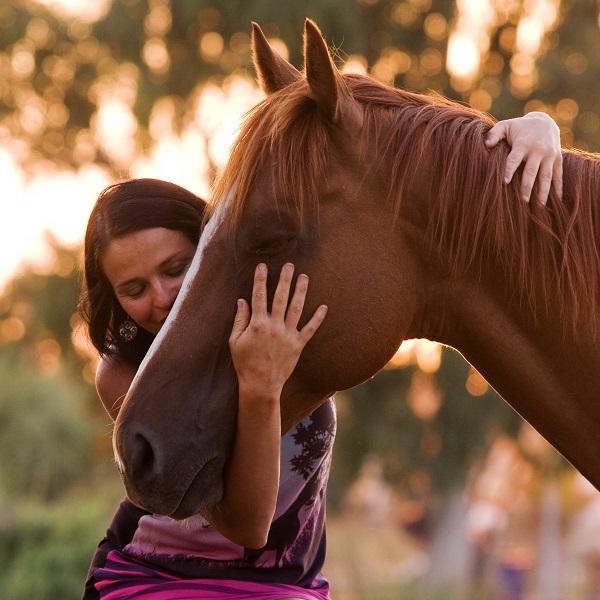
Senior horses really are the champions of their species. These are the mounts that are the bombproof schoolmasters helping shape riders into becoming true equestrians, and the gentle old souls who have kindled the flame of many lifelong lovers of horses.
But if you’re curious, we’ve listed the top reasons why we should all celebrate the senior horse.
1. They’ve got your back.
Calm and collected, senior horses have seen it all. Weird tractor in the field? No problem. Noisy truck in the parking lot? Ho hum. Big dogs, little dogs, men with beards, lonely wheelbarrow in the aisle, balloons, tarps, flags, screaming children, opossum in the trash bin? Check, check, and check.
If it’s your first horse show, first jump, first half-pass, first lope, first posting trot, or first time using a curry comb, it’s probably their hundredth or thousandth. They got this, meaning, they got you.
2. They are always young at heart.
Sure, most senior horses are relatively stoic as a rule. But they can still show a goofy side, proving that horses are always young at heart. What senior horse doesn’t go gaga for some peanut butter on an apple slice or make a hilarious face when you scratch that oh-so-sweet spot right between the shoulders?
And if you’re patient, wait for a crisp morning when everything is just so in the pasture and you just might catch a golden oldie kicking up his heels briefly because dew on the hooves in the early morning light sometimes just feels so darn good.
3. They are most forgiving.
Recall your first few times riding. Heck, maybe even your first few dozen times. Remember the odd extra kick or extraneous tug on the reins that made no sense at all? Out of all the conflicting messages new riders send to their mounts, it’s all in a day’s work for the seasoned senior mount.
Mistakes are how we learn, but this is a difficult concept to work around when we are learning in conjunction with another living being. Having a horse that is willing and able to ignore those minor and innocent “oops” moments is priceless to a novice rider.
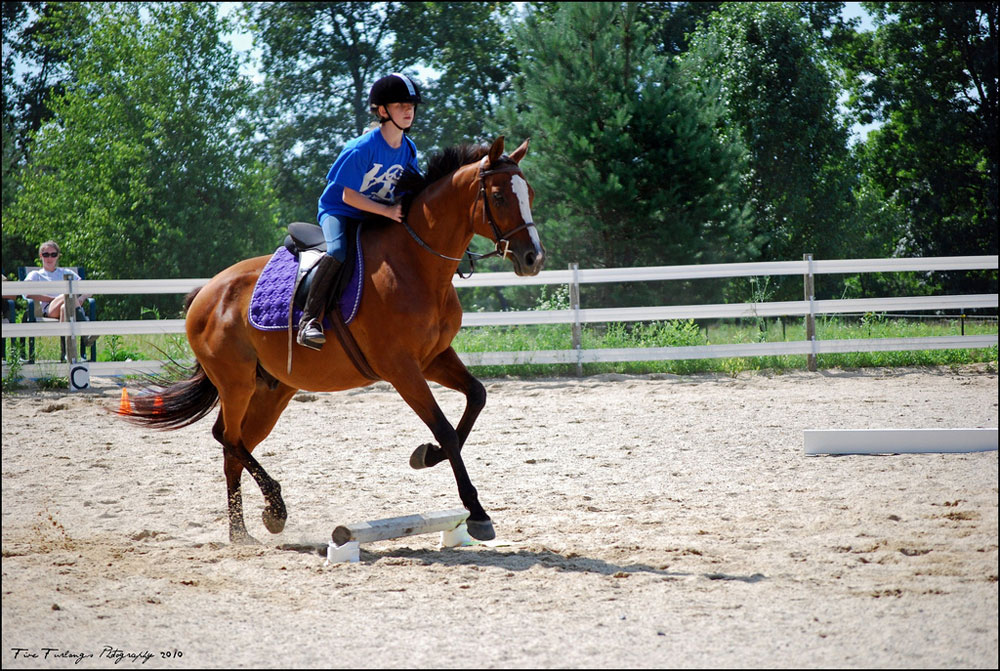
4. Enter the snooze zone.
Often, young riders yearn to simply soak up a horsey environment; just being around horses is really the best. This might mean perpetual baths in the summer or repeated mane braiding, then unbraiding, then re-braiding. Learning to pull manes, paint hooves, condition and detangle a tail … these are rites of passage for many horse-crazy kids.
Of course, these actions require a patient and gentle horse to endure the constant onslaught of well-meant attention. Enter the senior horse, whose ability to snooze while flowers are woven into his mane and glitter is amply applied to his hooves means he is worth his weight in gold.
5. Those kind, understanding, soulful eyes.
You know that look. It’s a deep glance, perhaps with a cocked eyebrow or a slow blink. Maybe there is some haziness to it. Maybe some gray hairs about it. But that eye has seen a lot of stuff and knows even more. It knows you and trusts you. Treasure it.
6. Age is a virtue.
Little is more meaningful in the realm of the barn than a rider learning from a horse older than that individual; it’s a classic scenario of master and apprentice.
A 25-year-old horse with a 15-year-old rider—think of the knowledge gained, the experienced shared, the bond formed. These are lessons learned to last a lifetime.
7. It’s not just about us humans.
Senior horses are role models for more than just us awkward humans. There’s a reason seasoned veteran mounts are chosen as track ponies, employed to help calm and guide flighty racehorses down the track to their post positions.
These stoic creatures are the epitome of composure, leading both horse and jockey safely to their destination in front of a crowd of sometimes hundreds of thousands cheering onlookers. In fact, these track ponies are even more than a safety net for capricious sprinters. Between races, they can be seen standing quietly at the edge of the track, often within reach of the stands.
Track ponies are ambassadors to their species, offering a soft nose to a tentative hand for a friendly pat. Because, after all, isn’t that what having horses is really about? It’s the quiet moments that are sometimes the most meaningful. Senior horses excel at those quiet moments.
ANNA O’BRIEN, DVM, is a large-animal ambulatory veterinarian in central Maryland.
This article originally appeared in the October 2017 issue of Horse Illustrated magazine. Click here to subscribe!

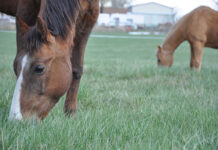
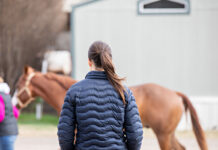
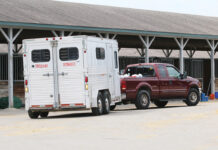

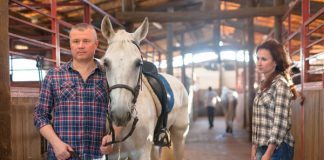
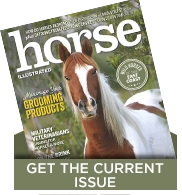
I believe horses cannot give their opinions here but if they could they would disagree. Horses like humabs are not all the same. Some will do what the rider wants. Others like my horse will argue and come to an agreement with you.